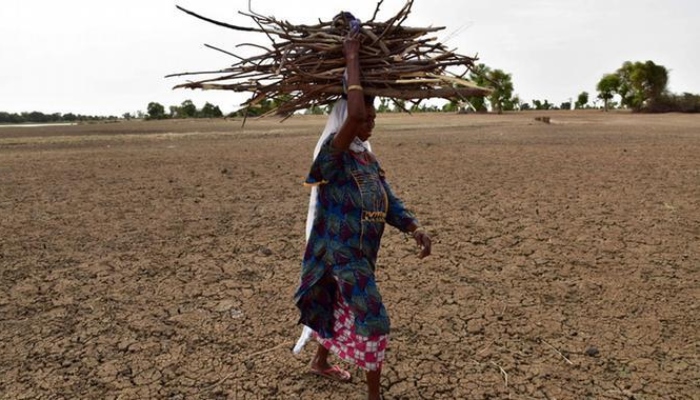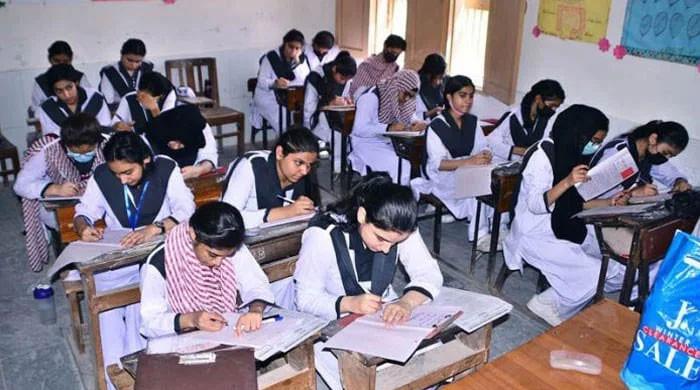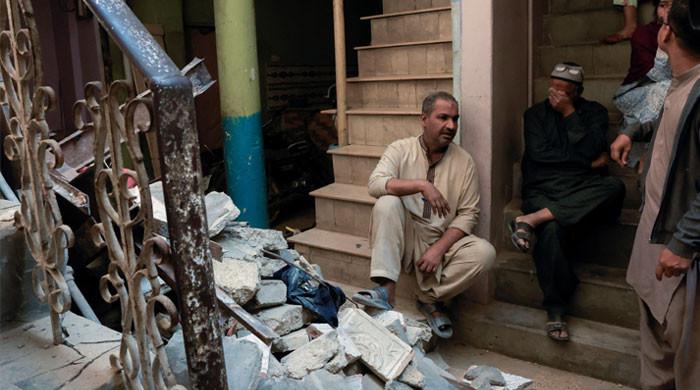Understanding connection between women's health and climate change
“There are negative effects of climate on all aspects of society, particularly health issues of the women and children," says Shazia Marri
June 05, 2022

KARACHI: Climate change has a disproportionate effect on women and children and the lack of resources has led to an increase in unsafe abortions, unwanted pregnancies, school dropout among girls, and a harsh spike in violence against women, girls and other vulnerable groups in Pakistan.
In a bid to create awareness about the sexual and reproductive health of women and its relation to climate change, Pathfinder International, with assistance from Takeda Pharmaceutical Company Limited and in collaboration with the Ministry of Sindh Environment Climate Change and Coastal Development, has launched a programme called "Advancing the Leadership of Women and Girls Toward Better Health and Climate Change Resilience.”
And to this end, an event was recently organised in Karachi, bringing together several experts and officials from the Sindh government. The event included a panel discussion which featured the diverse effects of climate change on sexual and reproductive health outcomes of women and lessons learned to inform current and future work in the country.
To combat climate change and its diverse effects, the programme will “equip women and girls in Sindh, Pakistan with the tools, knowledge, and resources they need to advocate for equitable health services and build community resilience to climate shocks and emergencies" for three years.
To improve women's and girls' health outcomes, the programme will focus on the application of climate-adaptive practices, and provide communities with the health facilities and knowledge to deal with emergency situations.
'Women, children affected the most'
Recognising the nexus between climate change and social degradation, Minister for Poverty Alleviation and Social Safety Shazia Marri said: “There are negative effects of climate change on all aspects of society, particularly health issues of the women and children."
She said that climate change results in floods, less water, and droughts which gradually impact the economy and directly pass on the effect to the most vulnerable population — women and children.
Marri added that these conversations are extremely important because they contribute to the cause.
'Pakistan, especially Sindh, most vulnerable to climate change'
Talking about the climate crisis being faced by people globally and in Pakistan, Provincial Minister of Sindh for Agriculture Ismail Rahoo said that Pakistan, especially Sindh, is one of the most vulnerable provinces to climate change.
"All the wildlife, as well as humans, depend on the Indus River. The government is not only concerned about the water crisis but also the quality of water," said Rahoo.
Talking about the policies being formulated by the provincial government, the minister said a large number of women were involved in the consultative process. "The policy is almost completed and has been approved by the chief minister," he added.
“In the last ten years, I’ve seen growing concern from government officials and civil society regarding the issue of climate change. But the common man doesn’t understand the threats associated with it. It’s always the government’s responsibility to first take up an issue, and make sure that the rest of society is also educated about it," said Rahoo.
'Women face violence due to food insecurity'
Talking about the violence and harassment being faced by women due to poverty as a result of climate change, the Director Institute of Environmental Studies University of Karachi Dr Moazzam Ali Khan said that women often have to face violence due to food insecurity.
"Due to lack of food and water, men tend to take their anger out on their wives and they also end up taking their children out of school," he added.
Shedding light on the matter, Country Director Pathfinder International Dr Tabinda Sarosh said: "Climate change has diverse effects on women as they have to take care of households as well as themselves and they are often isolated."
'An integrated approach'
Senior Technical Advisor CIP Sindh Dr Talib Lashari shed light on the various health issues being caused by climate change and called for an integrated development strategy. "All the sectors should align their resources," he added.












